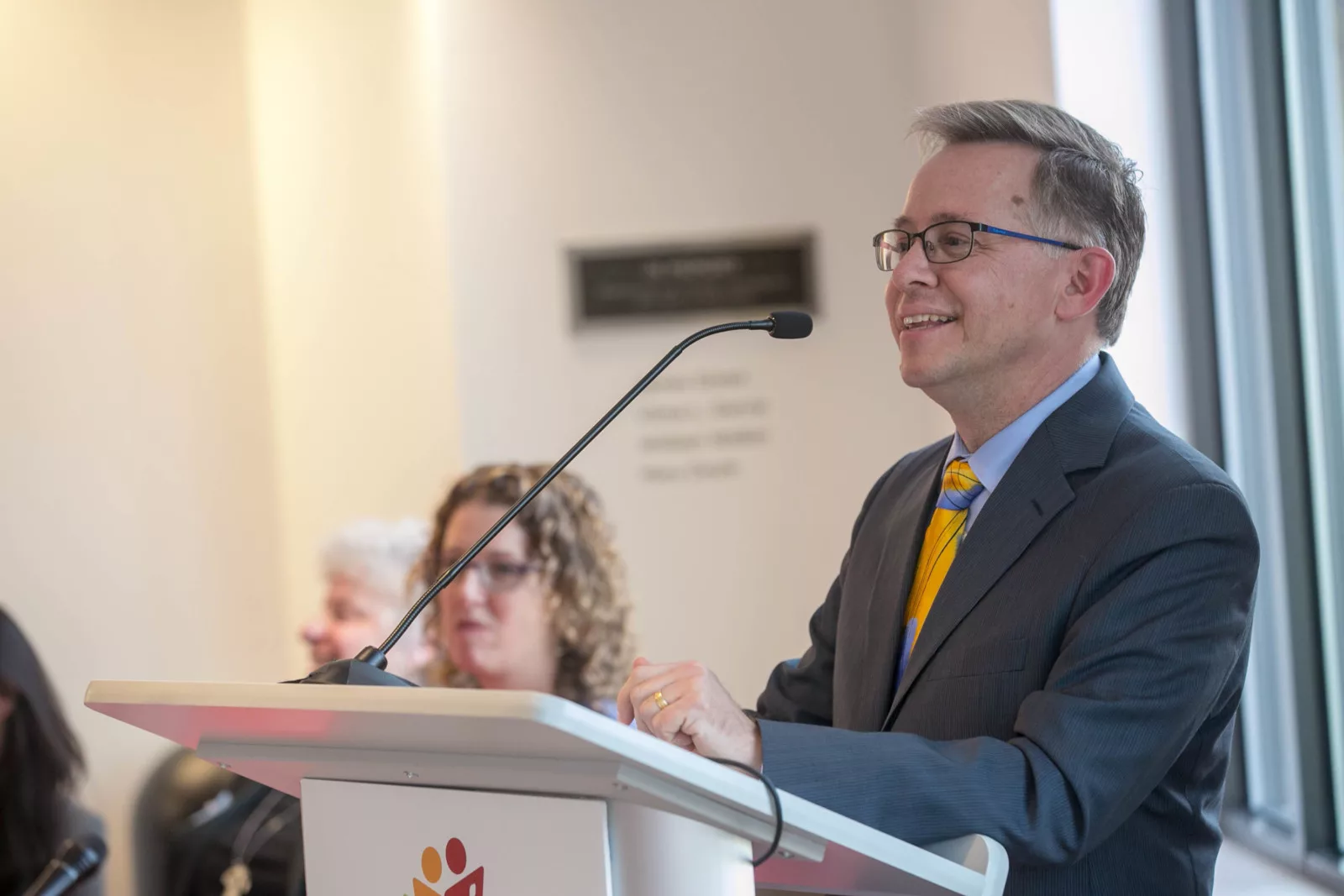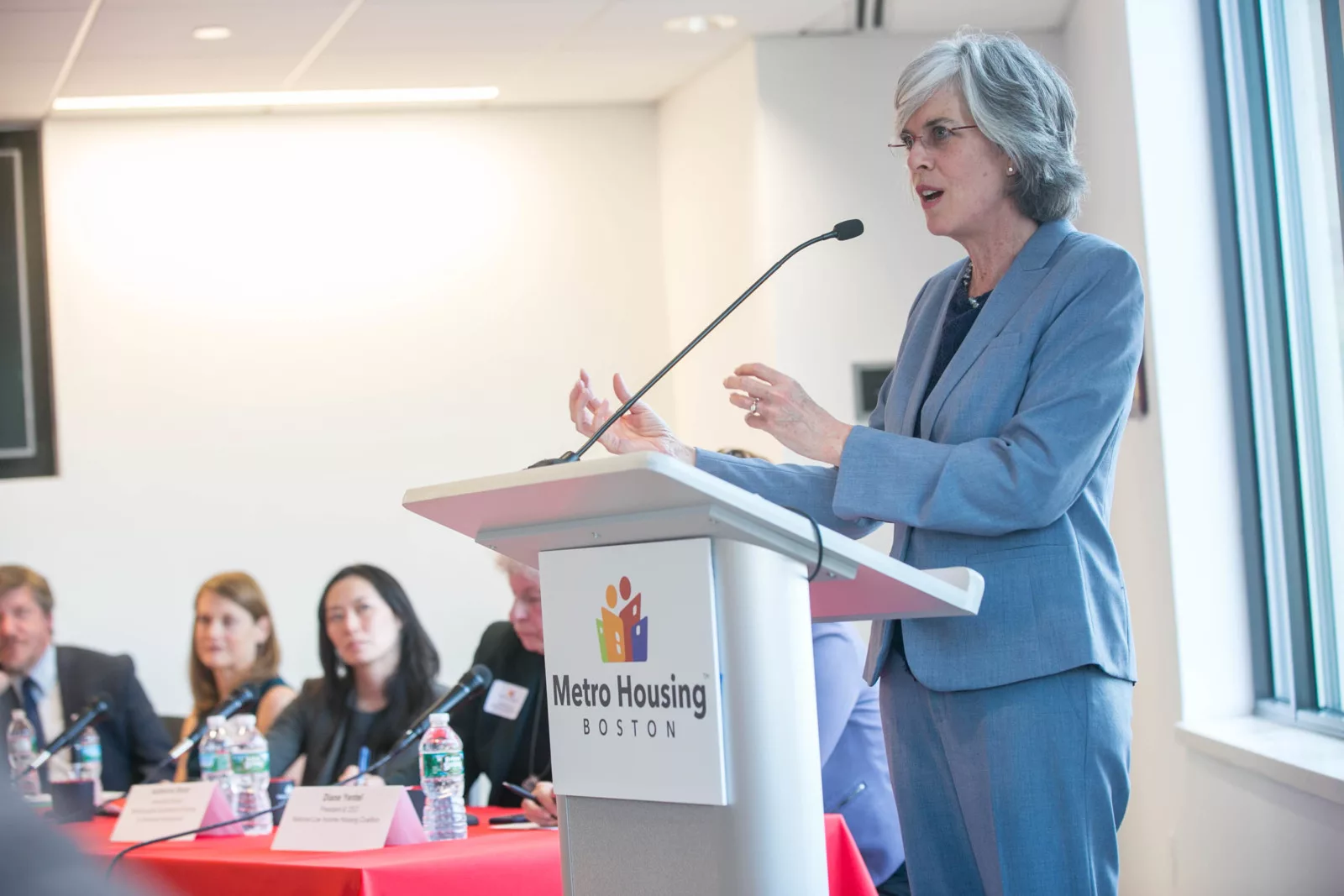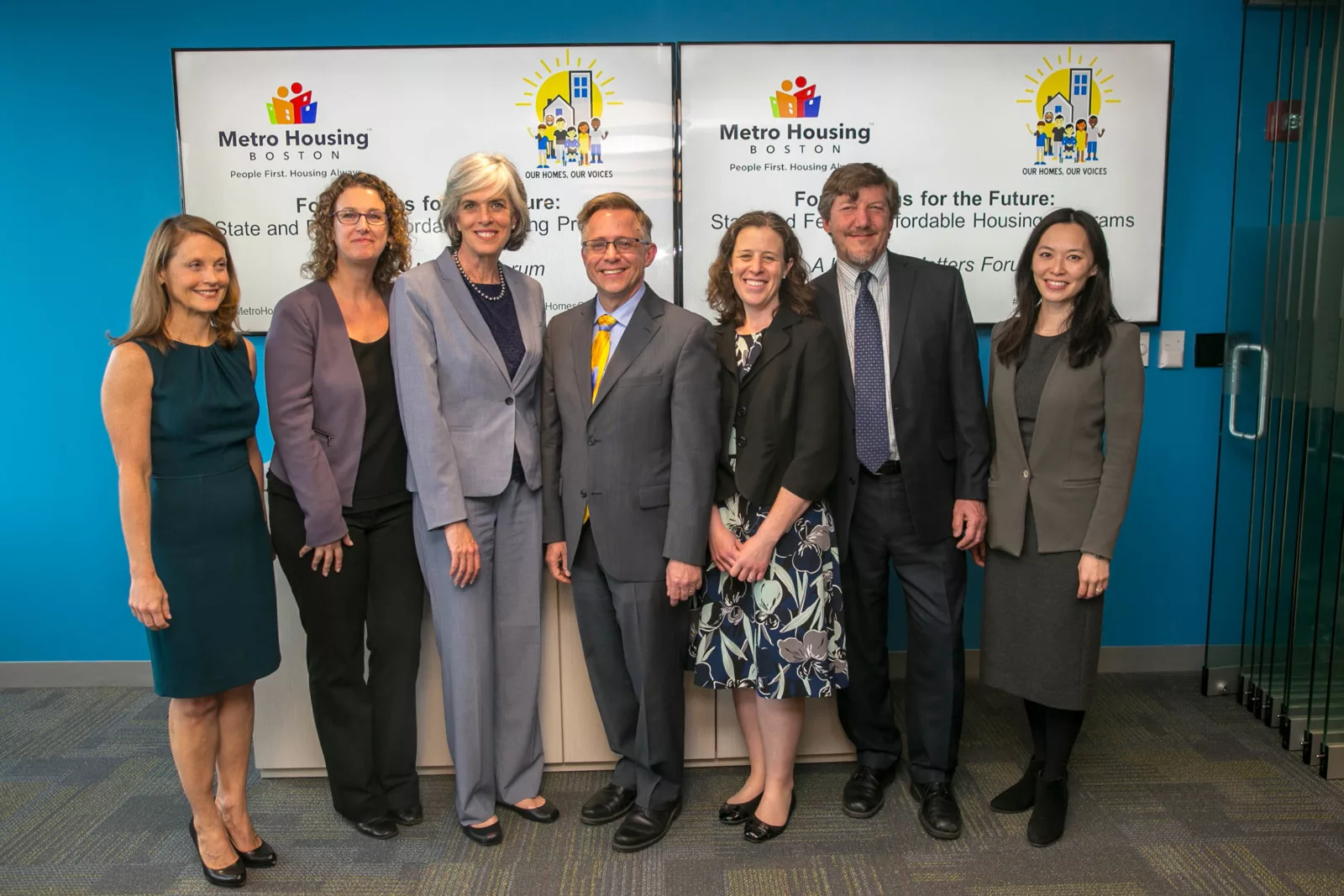By Christopher Norris, Executive Director, Metro Housing|Boston

Since its very beginning, Metro Housing|Boston has strongly believed that all sectors – nonprofits, business and industry, service providers, and government agencies – must work together to effectively address the issues that prevent access to affordable housing. Further, the lessons state and national policy makers can learn from each other can help further the policies we most care about, particularly through that of a civically engaged audience.
Those issues were at the forefront of Metro Housing|Boston’s latest Housing Matters Forum —Foundations for the Future: State & Federal Affordable Housing Programs – held last Tuesday, May 1.
We were honored to have Congresswoman Katherine Clark with us to welcome the affordable housing advocates and community leaders that joined us for the kickoff of National Housing Week of Action.

It was an interactive and dynamic evening of discussion among state and national policy leaders to discuss the successes and headwinds currently facing the affordable housing field in Massachusetts and DC.
We were joined by panelists Executive Director Clark Ziegler of the Massachusetts Housing Partnership, Cynthia Lacasse of MassHousing, the new Undersecretary of DHCD Janelle Chan, long-term DHCD associate director Kate Racer, and providing the national perspective was Diane Yentel from the National Low Income Housing Coalition. CHAPA CEO Rachel Heller walked the audience of approximately 100 housing professionals, developers, advocates, residents, and service providers through a comprehensive assessment of affordable housing today.

One of the key points I took away from the evening is the role that Massachusetts can play in highlighting effective programs for national replication. The commitment of successive Massachusetts legislative and executive-level support for proven programs – including, as Rachel pointed out, homelessness prevention programs like RAFT, state voucher programs, state supported public housing – show what can be done in a high-cost state that has taken the lead on affordable housing, specifically for families who have extremely low incomes.
Additionally, as Diane Yentel said, political will and desire to do something about the current situation is the order of the day, with political action/activation as the best and clearest way to change the dynamic. Noting that renters vote at one-third the rate of homeowners, Yentel said that getting renters, especially low income renters, politically active will help elevate the importance of affordable housing options in city halls and state houses across the country, and indeed in Washington, DC.
I am committed to working with our community partners, colleagues, and friends to keep the conversations active and to advocate for policies that will help assure that everyone will someday have a place to call home. Tuesday’s Housing Matters Forum was a great first step in that process.